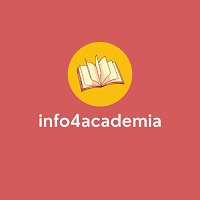The Role of The Government in Development of Community-Based Tourism on Economic Growth Inclusivity
Abstract
Full Text:
PDFReferences
Affandi, A., Sunarti., & Hakim, L. (2017). Peran pemerintah daerah dalam pengembangan destinasi wisata bahari Pulau Gili Noko Kabupaten Gresik (Studi pada dinas kebuudayaan, pariwisata, pemuda, dan olahraga Kabupaten Gresik). Journal of Business Administration, 49(1), 116-121.
Ariastini, N. N., Widhiarini, N. M. A. N & Oktaviani, P. E. (2018). Strategi pengembangan mepantigan sebagai atraksi wisata budaya dalam mendukung sport tourism di Bali. Proceeding SENDI_U. Retrieved from https://www.unisbank.ac.id/ojs/index.php/sendi_u/article/view/6016
Arief. (2015). Study of factors affecting the development of Small and Medium Enterprises. Proceeding Seminar Nasional & Call for Papers (SCA 5).
Arjana, G. (2015). Geography of tourism and creative economy. Jakarta: Rajawali Pers.
Ashraff, M., Kee, D. M. H., Hazimah, N., & Syafiqah, N. A. (2020). Key success factors of organizational success: A study of MULA Car International. International Journal of Accounting & Finance in Asia Pasific, 3(2), 46-56.
Austriana, I. (2005). Analisis factor yang mempengaruhi peneriimaan daerah dari sektor pariwisata [Unpublished Doctoral Dissertation]. Semarang, Universitas Diponegoro.
BPS. (2019). West Nusa Tenggara Province, In Attic, NTB.
BPS. (2020). Central Lombok, In Numbers, NTB.
Demartoto, A. (2009). Pengembangan pariwisata berbasis masyarakat. Surakarta: Universitas Sebelas Maret Press.
Herdiansyah, H. (2010). Metodologi penelitian kualitatif untuk ilmu-ilmu social. Jakarta: Salemba Humanika.
Hussin, R., & Kunjuraman, V. (2014). Pelancongan mapan berasaskan komuniti (CBT) melalui program Homestay Di Sabah. Malaysian Journal of Society and Space, 10(3), 160-174.
Jhingan, M. L. (2000). Ekonomi pembangunan dan perencanaan. Jakarta: PT. Raja Grafindo Persada.
Kuncoro, M. (2004). Otonomi pembangunan daerah: Reformasi, perencanaan, strategi dan peluang. Jakarta: Erlangga.
Kusworo, H. A., & Damanik, J. (2002). Pengembangan SDM pariwisata daerah: Agenda kebijakan untuk pembuat kebijakan. Jurnal Ilmu Sosial dan Politik, 6(1), 105-120.
Larassaty, A. L. (2016). Kontribusi sumber daya manusia di bidang industry kreatif untuk meningkatkan kinerja pariwisata (Studi kasus pada dinas kebudayaan dan pariwisata Kabupaten Pasuruan). Proceedings of the National Seminar on Economics and Business & Call Paper FEB Umsida. Sidoarjo: FEB Umsida.
Moleong, L. J. (2005). Metodologi penelitian kualitatif. Bandung: Remaja Rosdakarya.
Muallidin, I. (2007). Model pengembangan pariwisata berbasis masyarakat di kota Yogyakarta. Jurnal Penelitian Bappeda Kota Yogyakarta, 2(1), 5-15.
Pitana, I. G., & Gayatri, P. G. (2005). Sosiologi pariwisata: Kajian Sosiologis terhadap struktur, sistem, dan dampak-dampak pariwisata. Yogyakarta: Andi Publisher.
Pitana, I. G., & Diarta, I. K. S (2009). Pengantar ilmu pariwisata. Yogyakarta: Andi Publisher.
Purnaya, K. (2017). Phe development of community empowerment models in Alas Kedaton tourism object management. Hospitality Management Scientific Journal, 2(7), 121-132.
Runtunuwu, H. (2020). Tourism sector development strategy in North Maluku: A case study of Tidore Islands. International Journal of Tourism and Hospitality in Asia Pacific, 3(3), 1-8.
Sanjaya, R. B., & Hendrajaya. (2018). Strategi pengembangan pariwisata berbasis masyarakat di Desa Kemetul Kecamatan Susukan Kabupaten Semarang. Jurnal Visi Manajemen, 3(1), 246-257.
Sastrayuda, G. S. (2010). Konsep pembangunan Kawasan agro wisata. Hand out mata kuliah concept resort and leisure, strategi pengembangan dan pengelolaan resort and leisure. Retrieved From http://file.upi.edu.gumelar_s.go.id.
Siagian, S. P. (1997). Management suatu pengantar. Jakarta: Raja Grafindo Persada. Sugiyono. (2013). Educational research methods, quantitative approaches, qualitative, and R&P. Bandung: Alfabeta.
Tanuwidjaja, E. (2005). Economic growth and income inequality: Case Study on Indonesia (Pre-Crisis). Jurnal Ekonomi, 10(1), 1-34.
DOI: https://doi.org/10.32535/jcda.v4i1.1002
Refbacks
- There are currently no refbacks.
Copyright (c) 2021 Triana Lidona Aprilani, Yuliarmi Yuliarmi, AAIN Marhaeni

This work is licensed under a Creative Commons Attribution-NonCommercial-ShareAlike 4.0 International License.
Journal of The Community Development in Asia (JCDA)
ISSN 2685-8819 (Print) | ISSN 2654-7279 (Online)
DOI Prefix: 10.32535 by CrossRef
Published by AIBPM Publisher
JL. Kahuripan No. 9, Hotel Sahid Montana, Malang, Indonesia
Email: journal.jcda@gmail.com
Phone: +62 341 366222
Website: https://aibpmpublisher.com/
Governed by
Association of International Business and Professional Management
Email: admin@aibpm.org
Website: https://www.aibpm.org/
Licensing Information

Journal of The Community Development in Asia (JCDA) is licensed under a Creative Commons Attribution-NonCommercial-ShareAlike 4.0 International License .

















